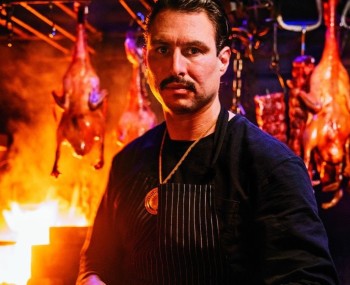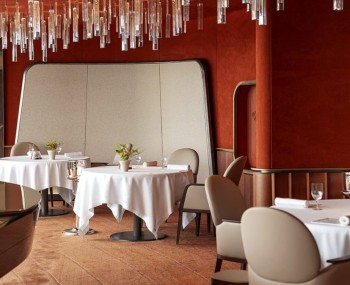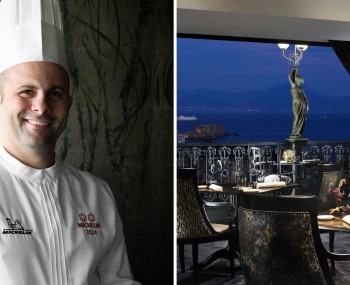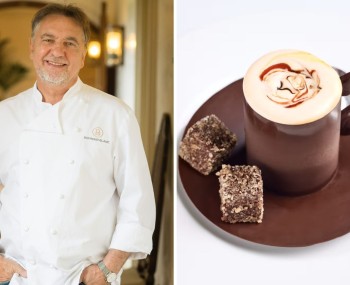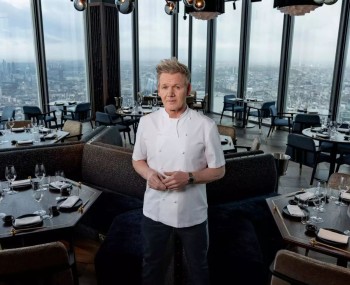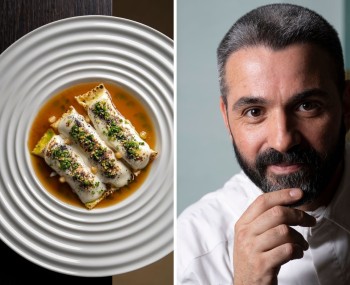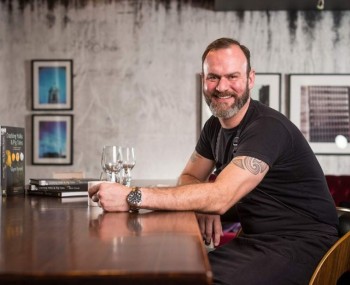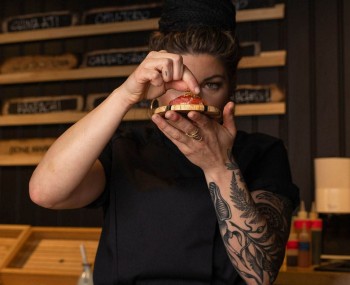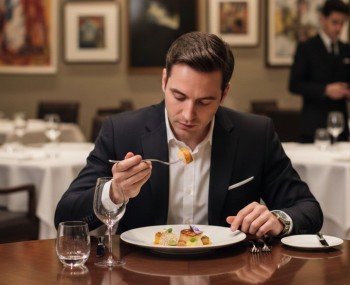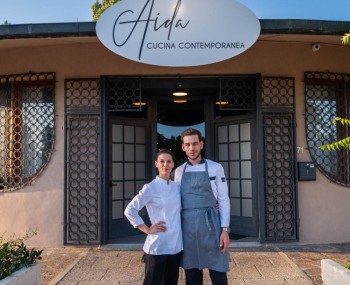In Turin, in the home of bollito and agnolotti, there is a chef who does some of the most advanced plant-based cooking in Italy. The flavors of the underground on the table of Antonio Chiodi Latini.
The restaurant and the chef
When you cross the threshold of Antonio Chiodi Latini's restaurant in the center of Turin, you first encounter in the crawl space a suspended plow, a symbol of the vegetable revolution he undertook in 2017. If you go on and enter, you may happen, as happened to me, to find the chef intent on checking the parameters of the Rotavapor, a scenic piece of machinery that haute cuisine has borrowed from pharmacy, used to separate and concentrate aromas and flavors through the controlled evaporation of a food's liquids.
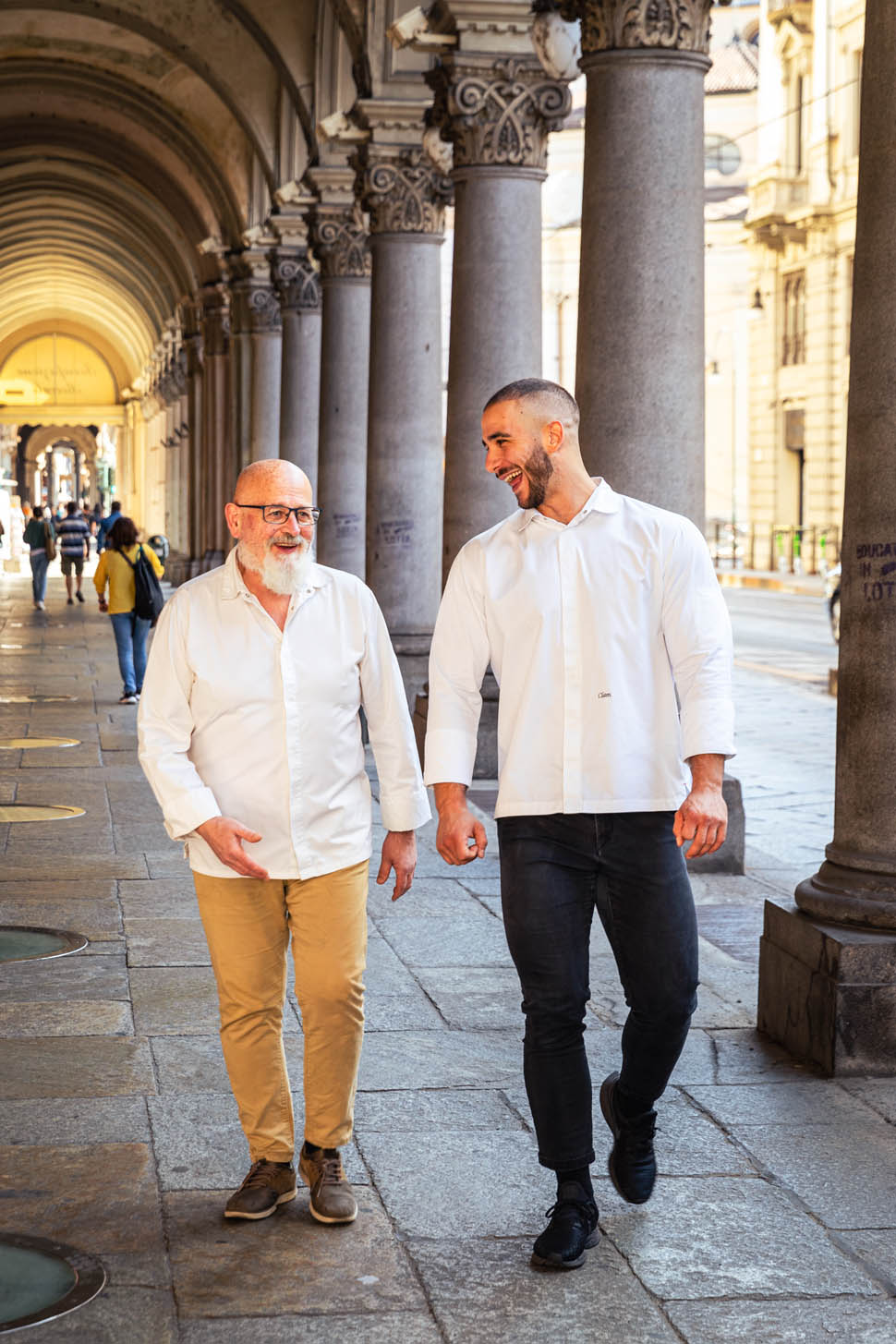
As I enter the restaurant on a Friday lunchtime, the instrument is dancing smoothly, rotating, with May herbs inside from which a spring water will be extracted. The chef is so absorbed that he barely notices I have entered but, as soon as he notices me, he invites me with him to observe the magic up close. Earth and research, flair and technique, taste and awe, disclosure: the chef's world already shows itself here, even before sitting down at the table. Chiodi Latini is an experienced chef, 64 years old, who has worked at the court of prestigious insignia on the Turin scene and found a disruptive turning point when he decided to abandon his omnivorous diet a few years ago.
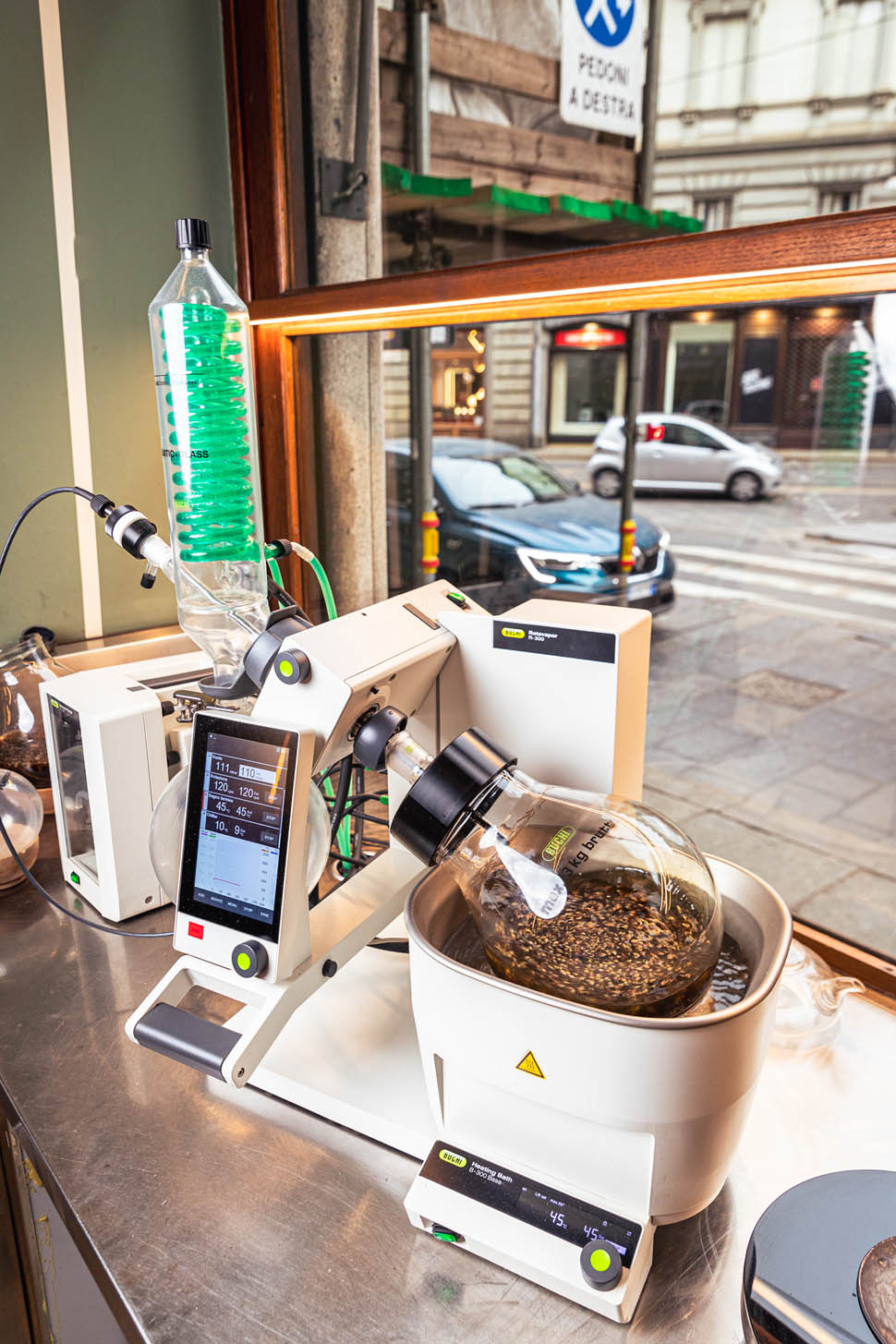
The chef, who wants to go beyond the common definitions of “vegetarian” and “vegan”, defines his cuisine as “ underground,” understood as a means of drawing the integral form of the vegetable from underground, emphasizing it and putting it on stage to take the whole stage. His research takes the form of a movement, indeed, a upheaval of the commonplaces and habits related to vegetables. He wants to break down preconceptions, demolish everything that can create instinctive resistance to the vegetable, such as pronounced sulfurous exhalations, unlovely textures, not always inviting appearance, and he does so by strokes of experimental treatments such as cryogenization, ripening and cryo-drying, which go on to affect the ingredient in a transformative way.
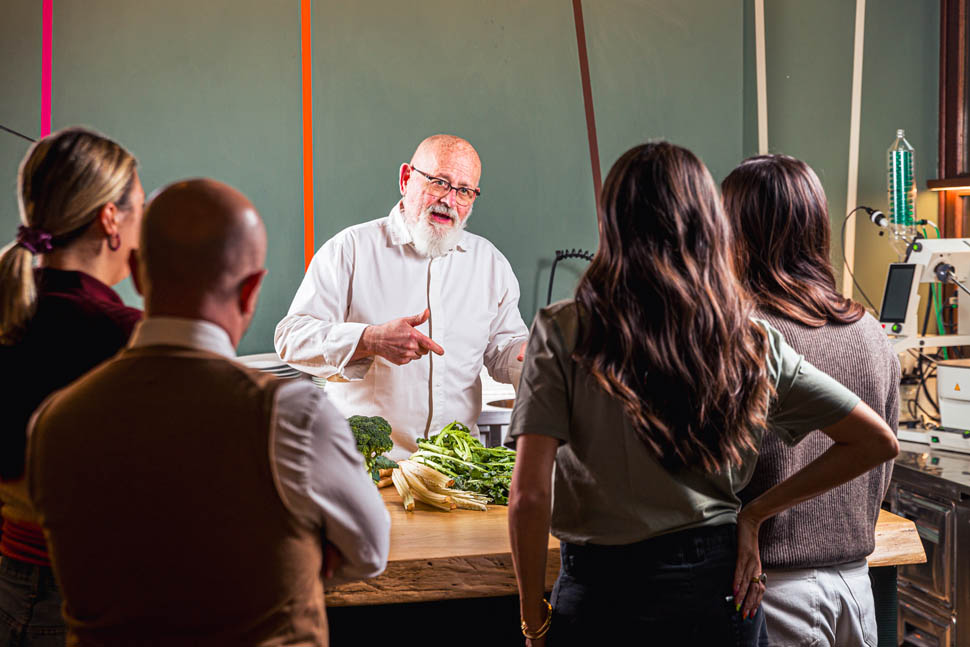
One could almost call it a mission, pursued every day with trial and error and evolution, which has transformed his kitchen into a permanent lab on the vegetable in all its manifestations, but always with the happiness of those sitting at the table as a pre-requisite. In the dining room, there is never any talk about proteins, diets, health, and no judgments are made: the aim is to involve and invite people to get used to feeling good in a new, futuristic way. The ennobling of the produce of the earth begins well before the kitchen, with the choice of suppliers: one in the heights in Valle D'Aosta, Paysage à Manger, one in the plains of Biella, Cascina del Chioso, and one in the hills in Moncalieri, R.A.M. Radici.
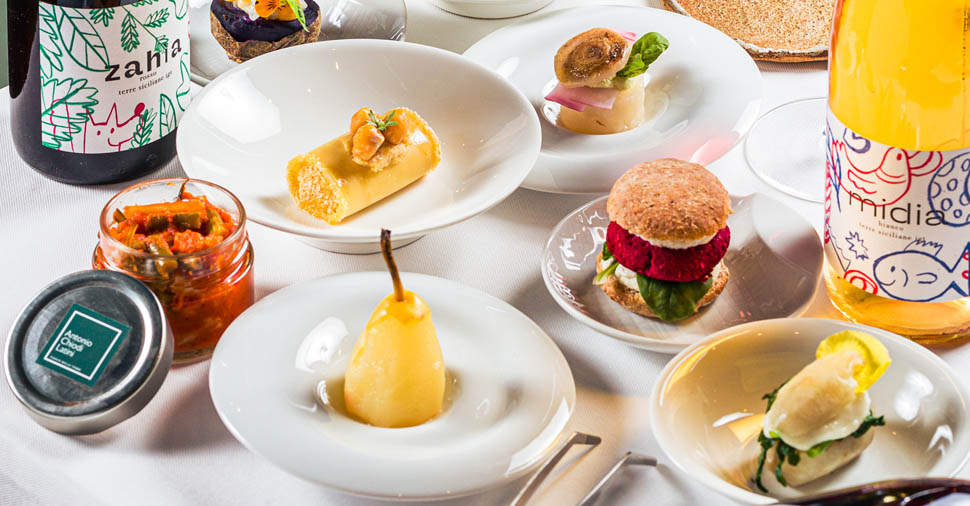
From each he receives seasonal produce, sometimes purchasing entire crops in advance so that there is that serenity in production that allows him to avoid impactful treatments aimed at achieving certain sales targets. The restaurant's menus, of which there are no fewer than 11 over the course of the year, present proposals that are structured and modified precisely according to the production cycles and results in the field of its suppliers. It is a mode that remains in listening to the lands, even before that by the season. It comes across almost as a rebus, somewhat cryptic, the restaurant's current menu.
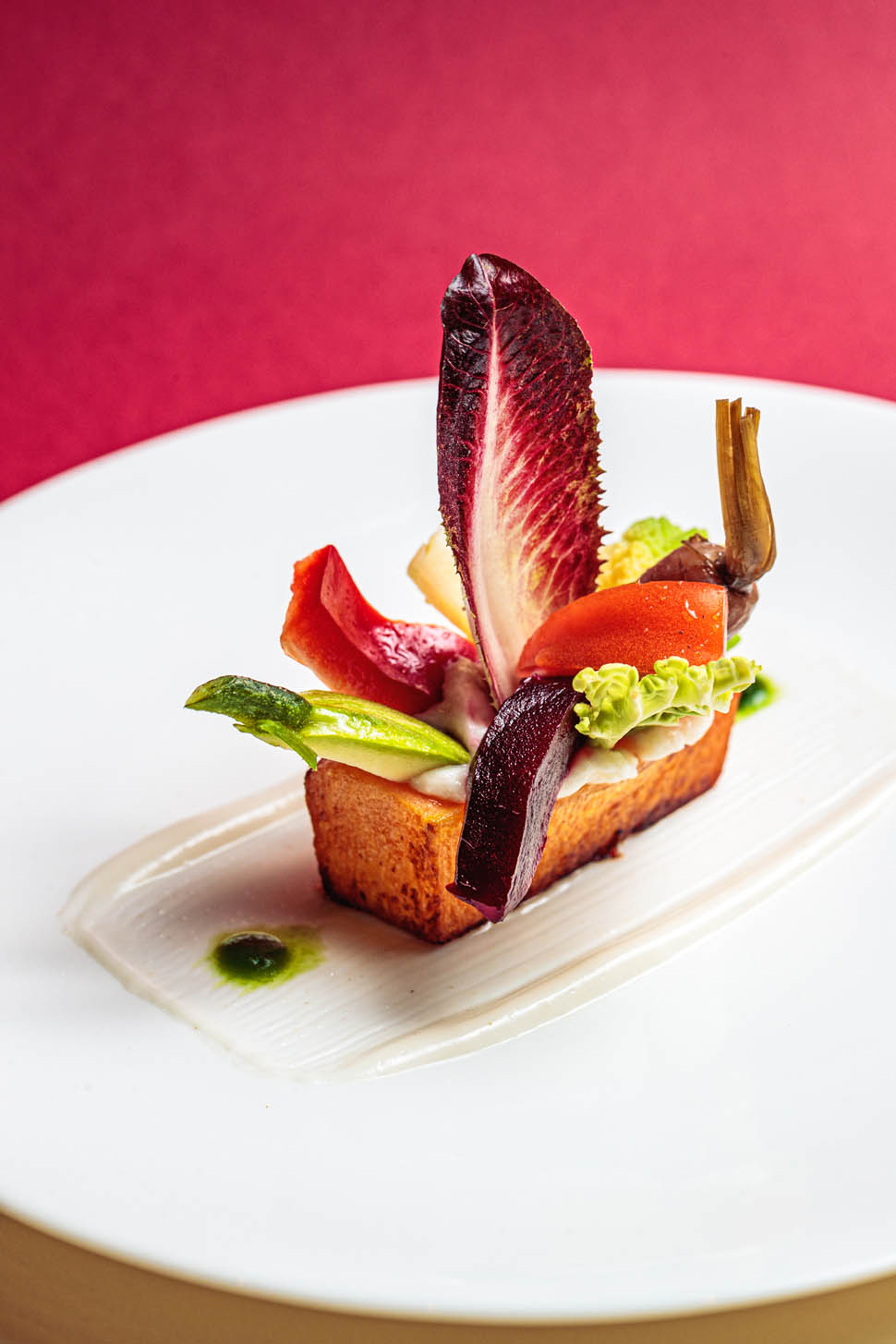
With symbols, splashes of ingredient powders like colors on canvas, he envisions paths ranging from 4 to 9 interpretations, including one freehand and one dedicated to dining.
“Welcome to the kitchen of the future,” he promises. And, so on we go.
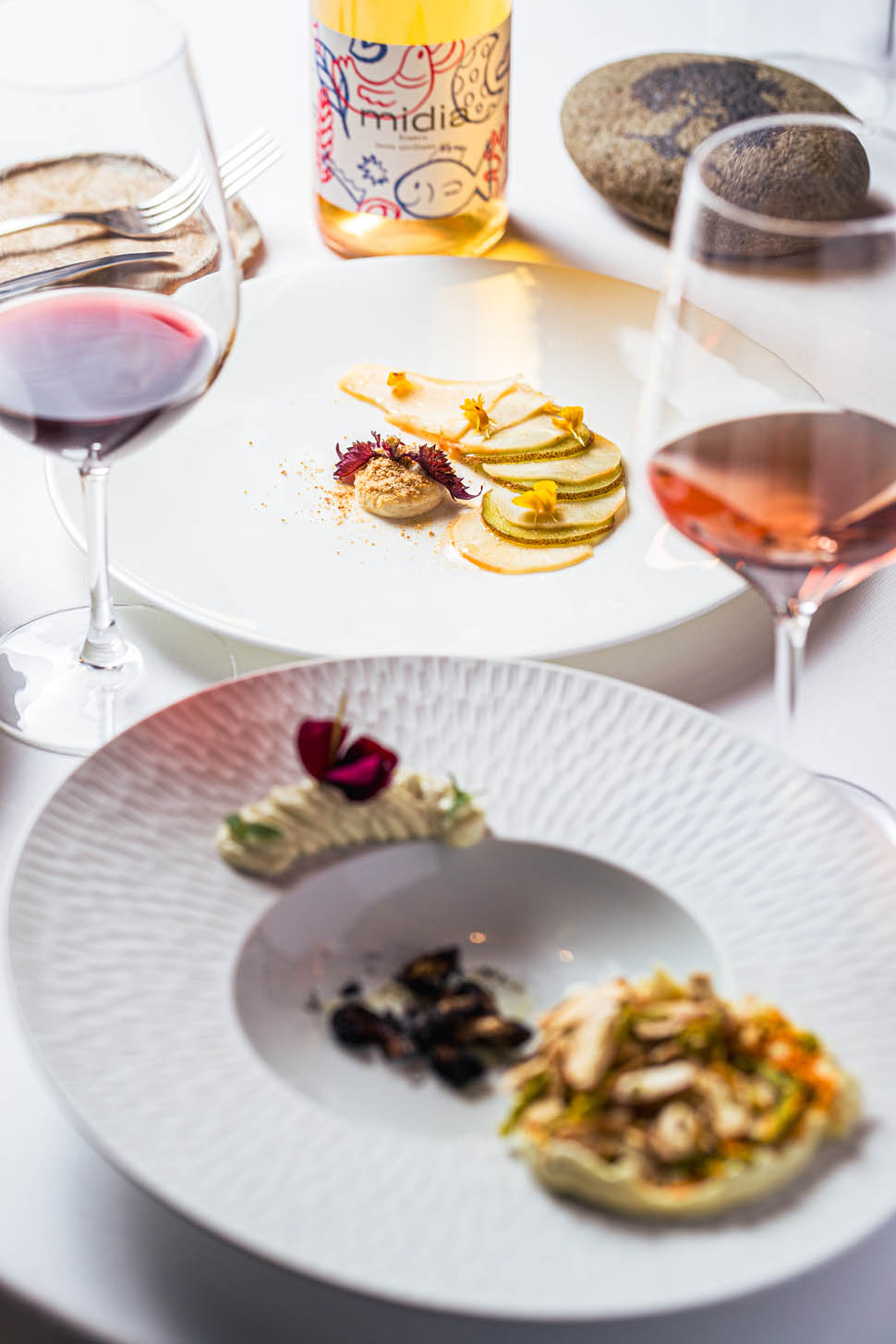
My route to the table
Already the small appetizer arouses astonishment, with vegetables that are not so often encountered: tuberines. Arranged on a delicate warm cream of spring onion, at a glance they evoke the shape of small earthworms: as in a game, everything mentions the earth. In combination, to invigorate the body, one fills the goblet with a birch sap in oligomineral water. The next dish is Kohlrabi with onion and gin, with delicate pastel tones of edible flowers and violet mountain potatoes, and the thin, almost impalpable texture of the stuffed vegetable pasta sheet, as if in memory of a small tortello. It has grace in appearance and also on the palate.
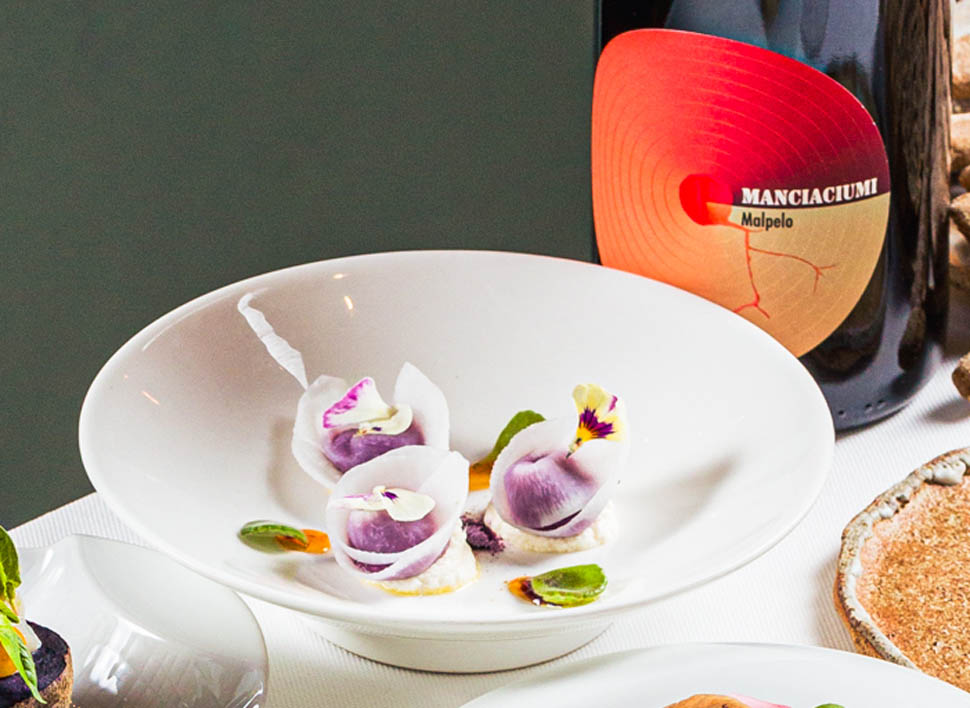
But here comes a promise of fun: a disorienting version of the classic Pinzimonio: 4 extra virgin olive oils from different Italian regions poured into as many small glass bowls, with colorful “clumps” next to them, capsules made from freeze-dried vegetables. It involves taking each one, dipping it in the paired oil and giving it time so that it takes on a new consistency and releases all its flavor, concentrated. It is a game that invites us to pay attention to the sensation without being betrayed by visual expectations, to taste in a different way and in a more intense version what we already know.
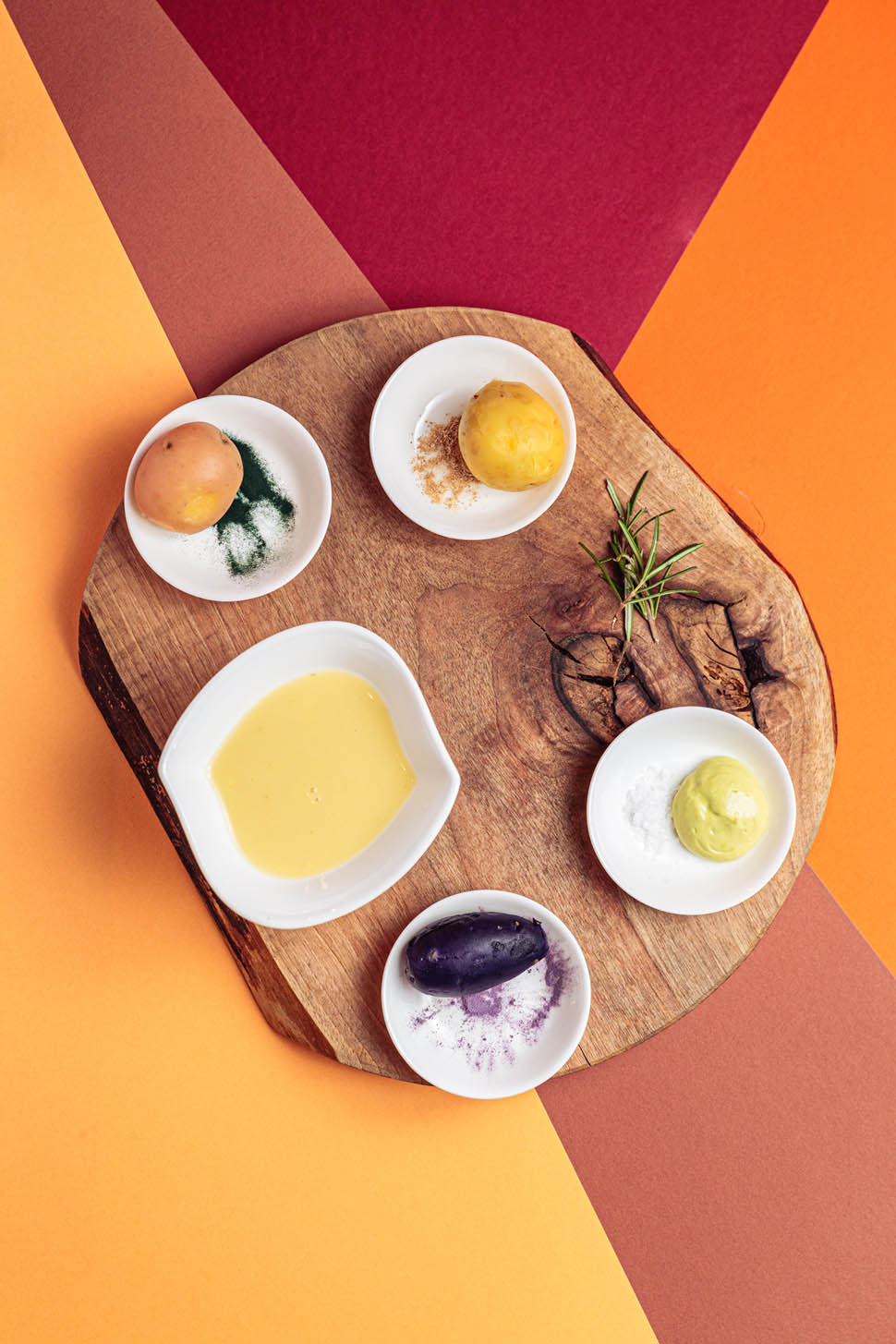
Between domes, we cleanse our palates with a spray-flavored water that the chef presents as “phytoalimurgy,” or a dietary use of wild herbs. This is not the first and will not be the last of the terms with an almost alchemical suggestion that one encounters along the way. We are still in appetizer time, when a Carpaccio of celeriac arrives, with Cuban oregano and papaya. The vegetable, wafer-thin, has been treated with a brine and citric acid, a process not far removed from that reserved for meats suitable for becoming cured meats. It proves savory, pungent, crisp, pronounced in acidity.
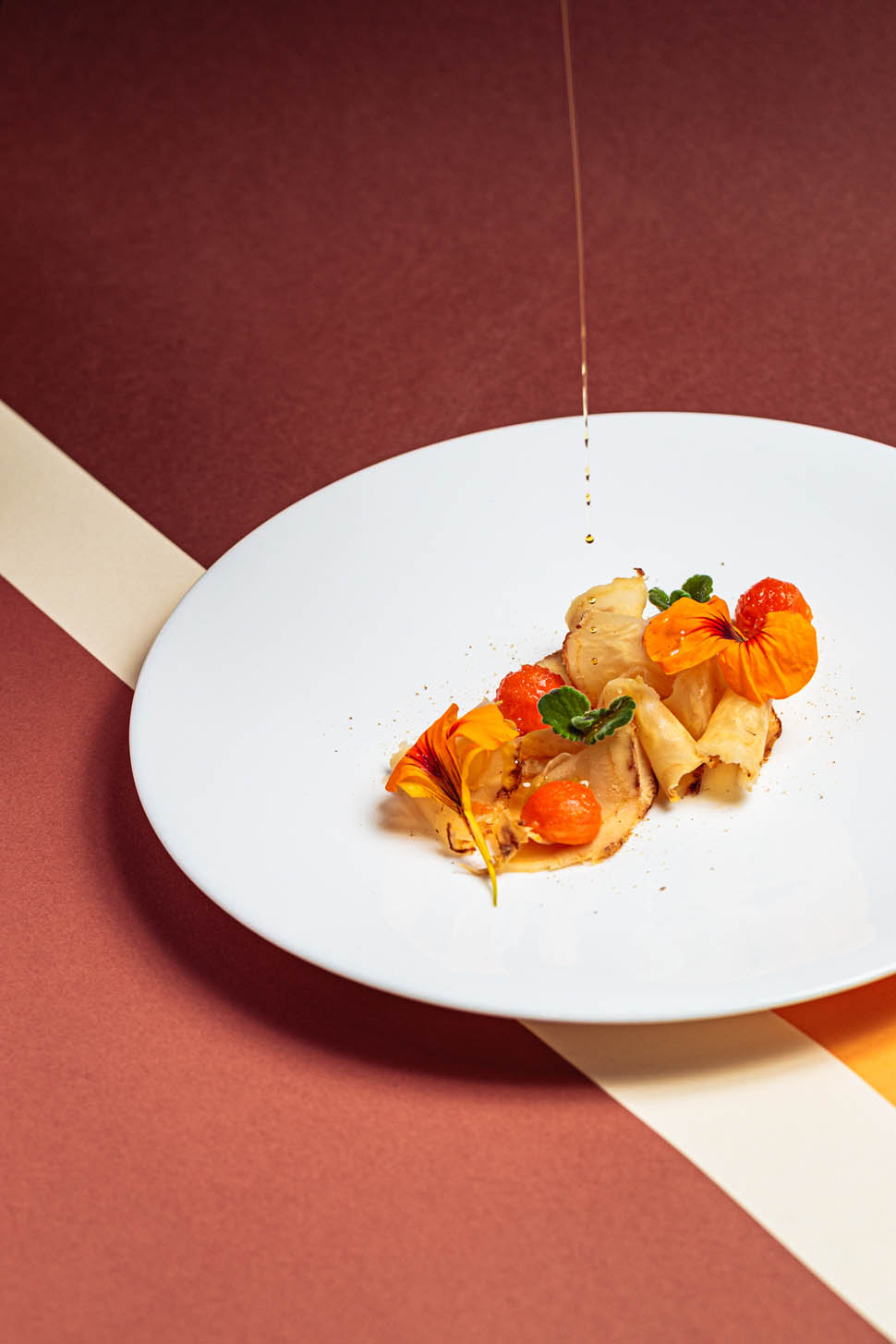
I am ready to be surprised again by Zucca in bagna piemontese, a dish proposed as an alternative to the classic seasonal bagna càuda, in which the vegetable component is magnified by an edible fojòt that imparts a novel shape to the pumpkin. The accompanying vegetables, transformed by a cryogenization process, are to be dipped in a garlic-based sauce that, processed with long cooking, retains its aroma while promising levity. A suggestion perhaps more conceptual than gustatory, for a dish kinder than the one that inspires it. Even with subsequent courses, the chef offers underground alternatives to traditional dishes.
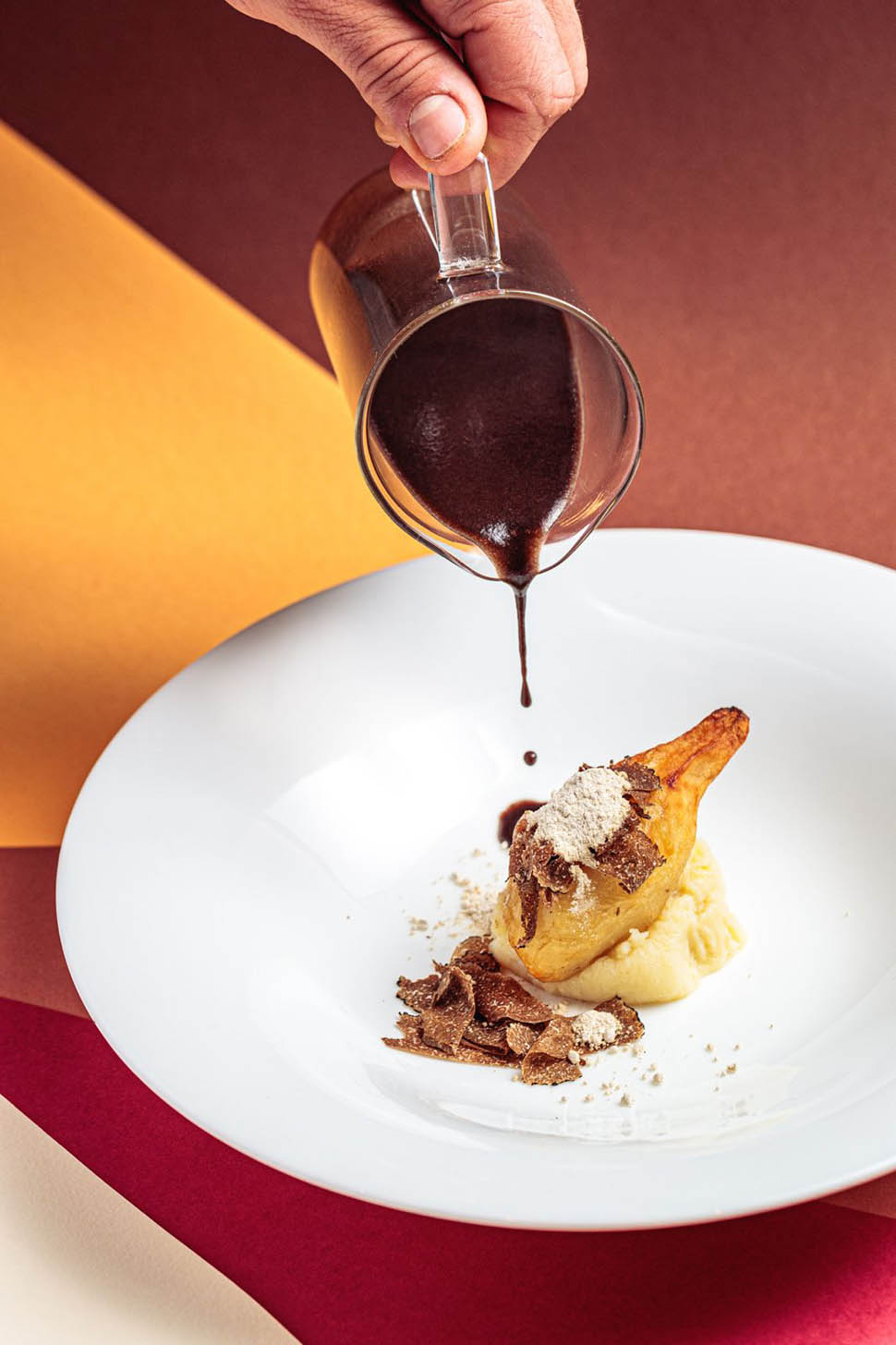
If in the former the visual memory of the plin on fondue displaces the taste with the roundness of the pistachio replacing the cheese, it is the Topinambur alla cenere that tells most of all the commitment and ardor of Chiodi Latini's work. All of the supplier's tubers, even the smallest and most difficult ones, find a use, without waste. The bottom, made from the skins cooked for two days at 94 degrees, echoes a brown bottom in intensity and texture, eventually approaching the memory of a coffee. When it comes to dessert, there is more play and it even veers into bitterness: a small madernassa pear marinated in soy sauce is presented as a tool for destroying the letters of a poster written with a soft burnt chickpea meringue.
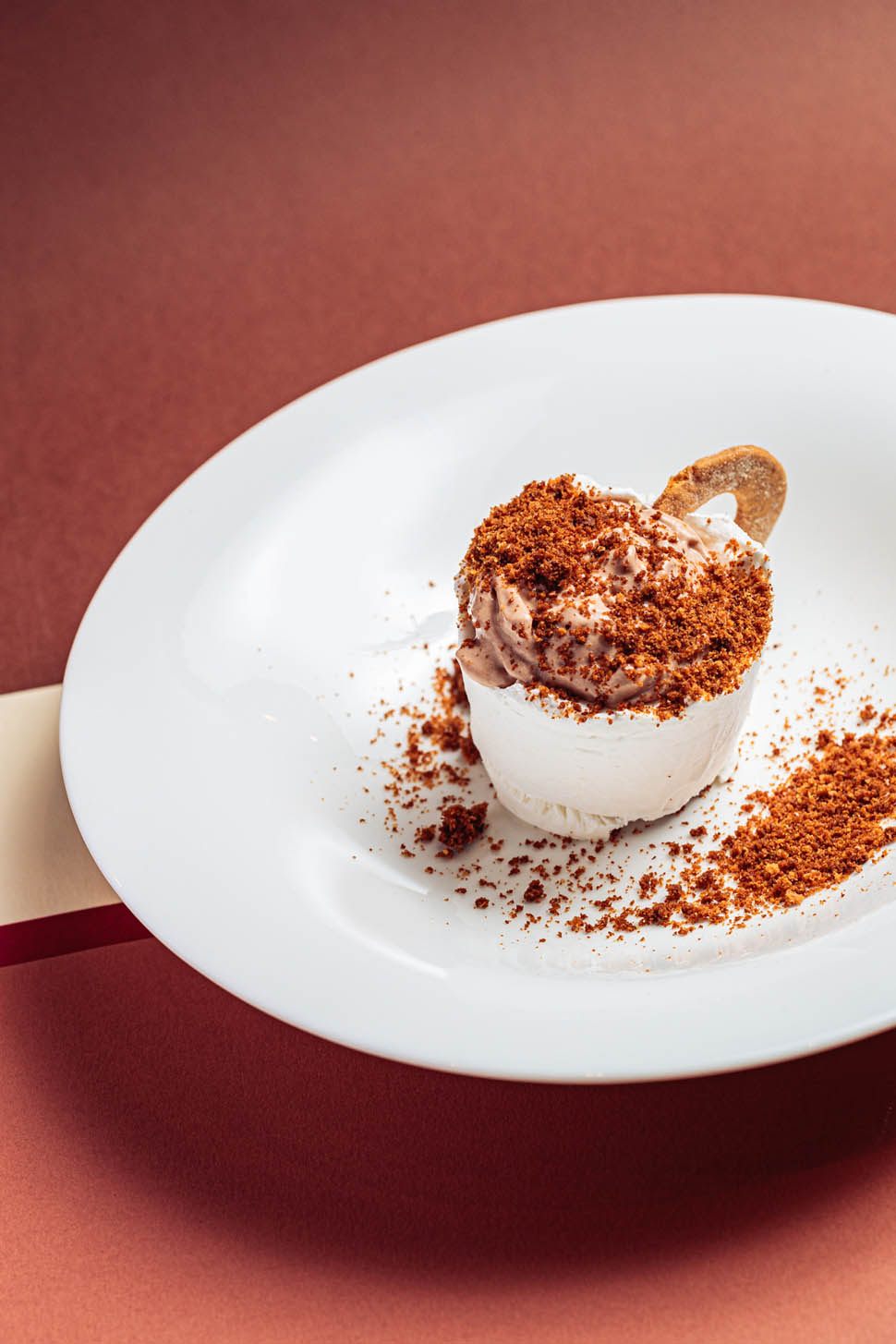
Another dessert follows, Gianduia Glass, in which an intense hazelnut from the Langhe takes center stage, dripping like zabaglione onto the almond-based edible container. The wine list, which bears the name “Plow,” also displaces. Banishing the classic “bubbles - whites - reds” structure, here it is divided into:
- powders, with the wines facing upward, like bubbles;
- stones, with the more mineral ones;
- clods, with contact wines, with prolonged maceration;
- lands, with the productions that tell more about the territories to which they belong.
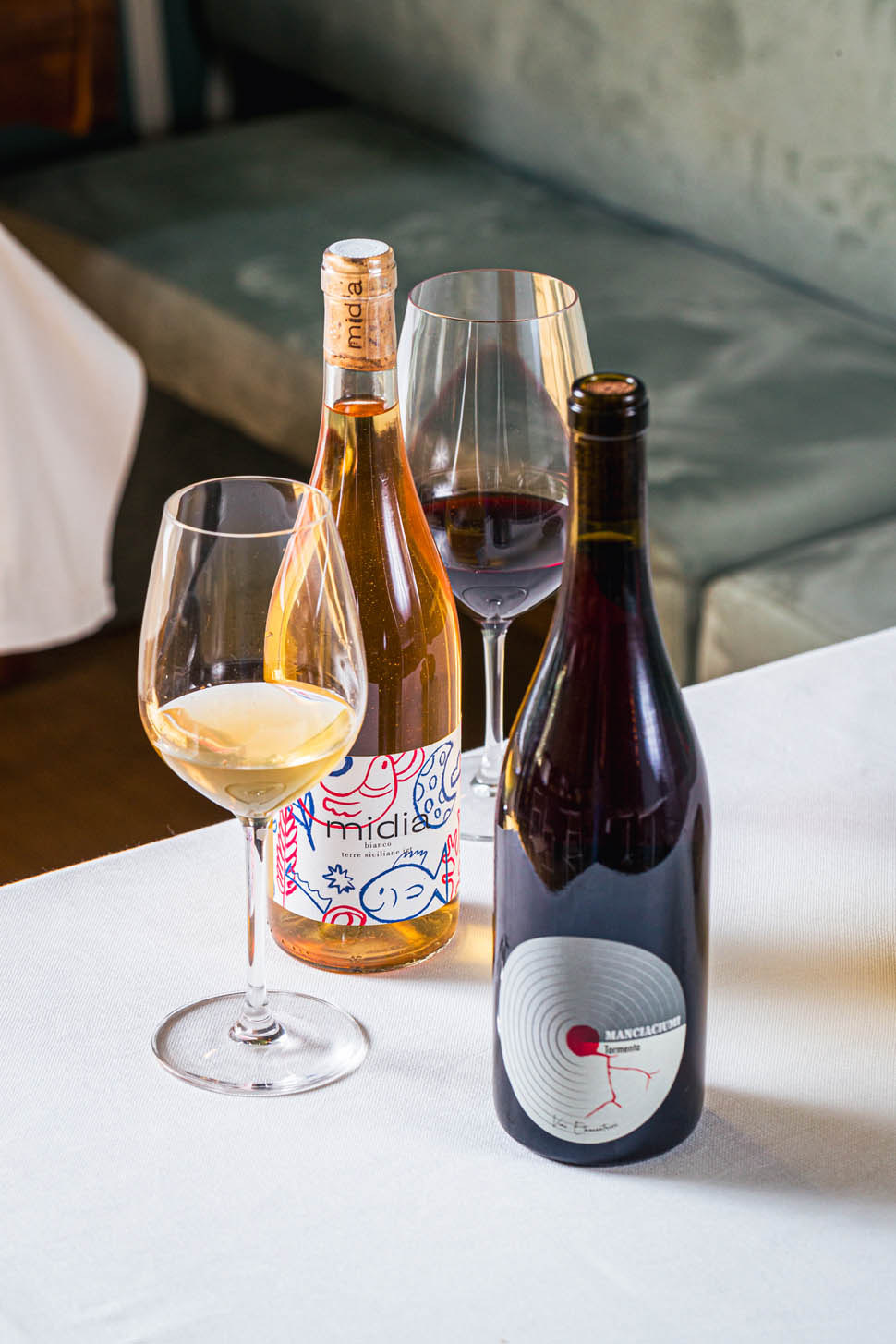
The division is posed as a metaphor for the gesture of the plow in the field: it breaks the earth, divides clods, lifts up dust and moves stones. Also offered in the room by Giorgia Chiodi Latini, the chef's brilliant daughter, are multiple modes of bold non-alcoholic pairings with:
- wild food infusions;
- flavored blends from selected producers on a rotating basis;
- mountain apple juices;
- fermented ZTL-MDP-XANANX made in Rome with Leonardo di Vincenzo, formerly of Birra del Borgo, now in partnership with her.
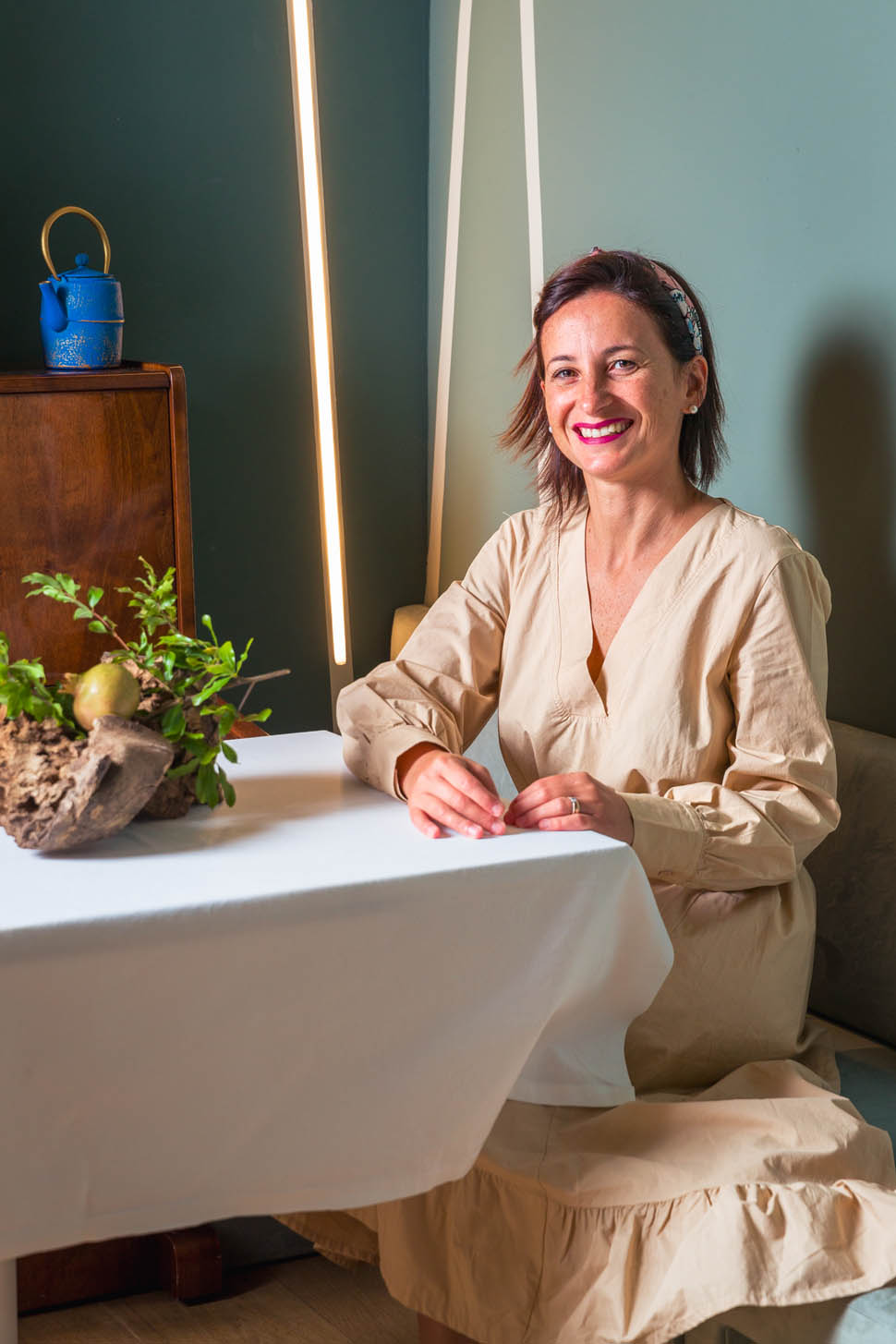
In addition to the restaurant, which now registers a number of loyal customers who return at every menu change and many foreigners visiting Turin who book well in advance, Chiodi Latini's project includes:
- a vegetable deli hosted by Iperbiobottega, among the very first supermarkets in Italy geared toward organic and natural choices, also in Turin.
- Emporio vegetale, a selection of products from his research packaged especially for B2B in catering.
Contact
Antonio Chiodi Latini
Via Antonio Bertola 20/B, Turin
Phone 011 0260053 - info@antoniochiodilatini.com
Opening hours: Tue-Sat 12-15 / 19-21

